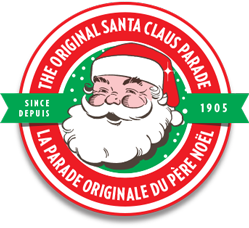The History of the Parade
2024
120 Years
2024 marks the 120th year for the Santa Claus Parade. For the very first time, the parade will be broadcasted LIVE on
YouTube for all to enjoy.
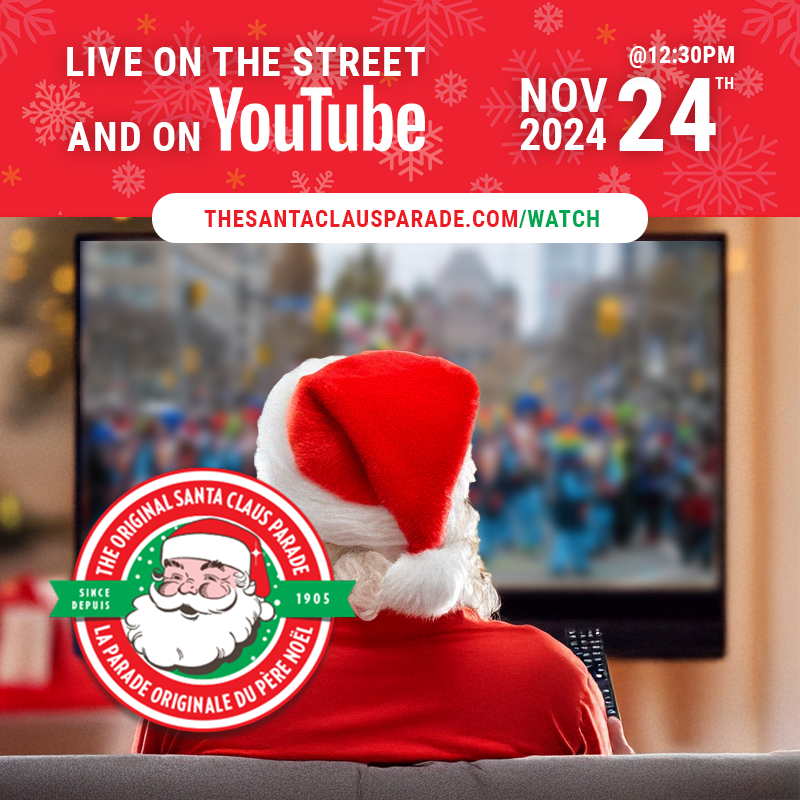
2022
Back on the Streets!
We were back on the streets after 2 years. It was so nice to see so many smiles and children full of joy as Santa made his way through the streets of Toronto again!
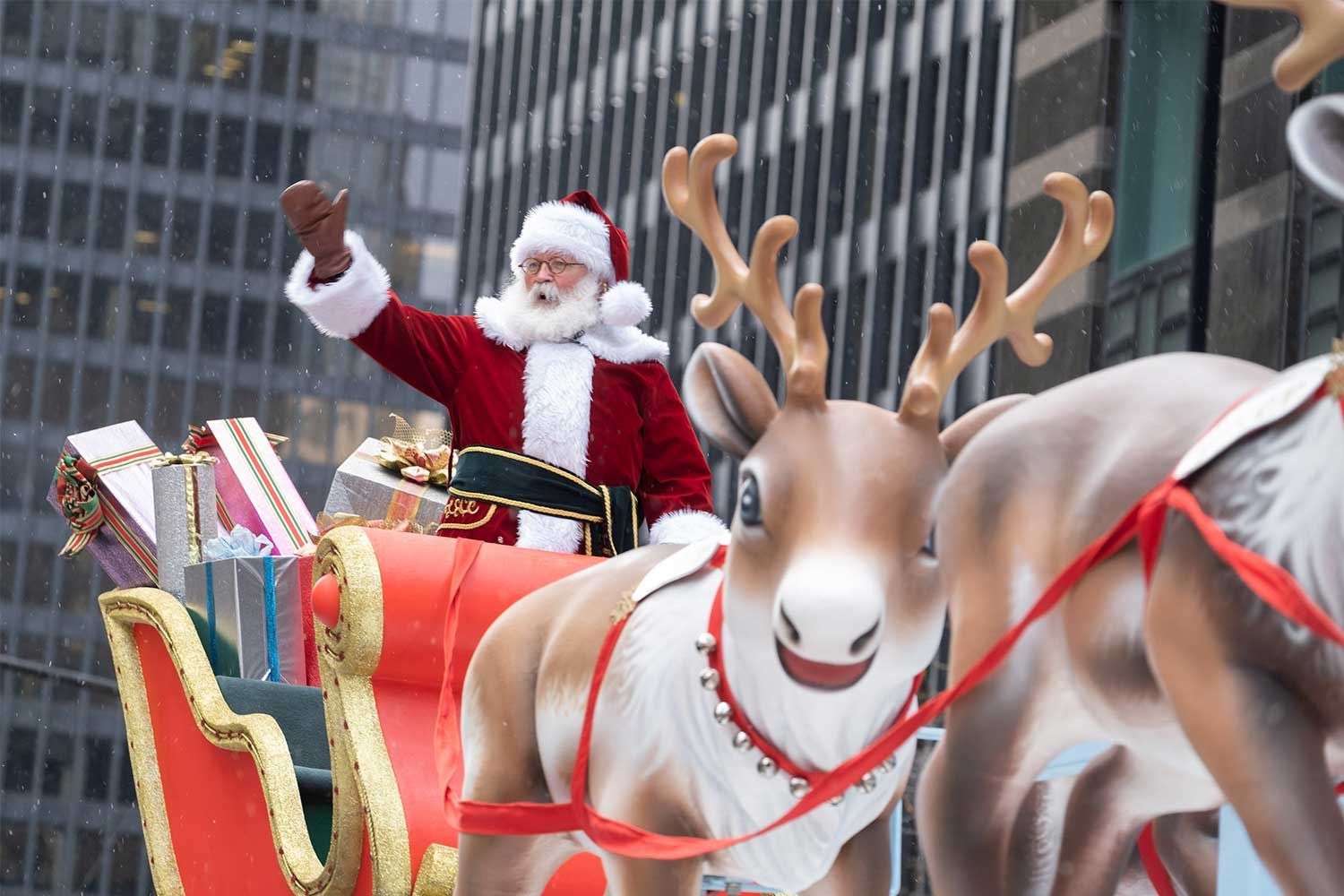
2020 - 2021
Covid-19 Production
2020 marked a historic year that had the team working on all cylinders to put on the very first made-for-tv production of the parade to adhere to social distancing rules. The production was filmed at Canada's Wonderland and featured musical performances by Kelly Clarkson, Brett Eldredge, Meghan Trainor, Shaggy, Aviva Mongillo, Toronto Smyphony Orchestra, and Dolly Parton! Over 25 floats lit up under the spectacular lights of Winterfest at Canada's Wonderland. The Parade saw record viewership and was available via streaming services days after to keep holidays bright. It was a year to remember as we worked hard to put smiles on everyone's faces through a very difficult time.
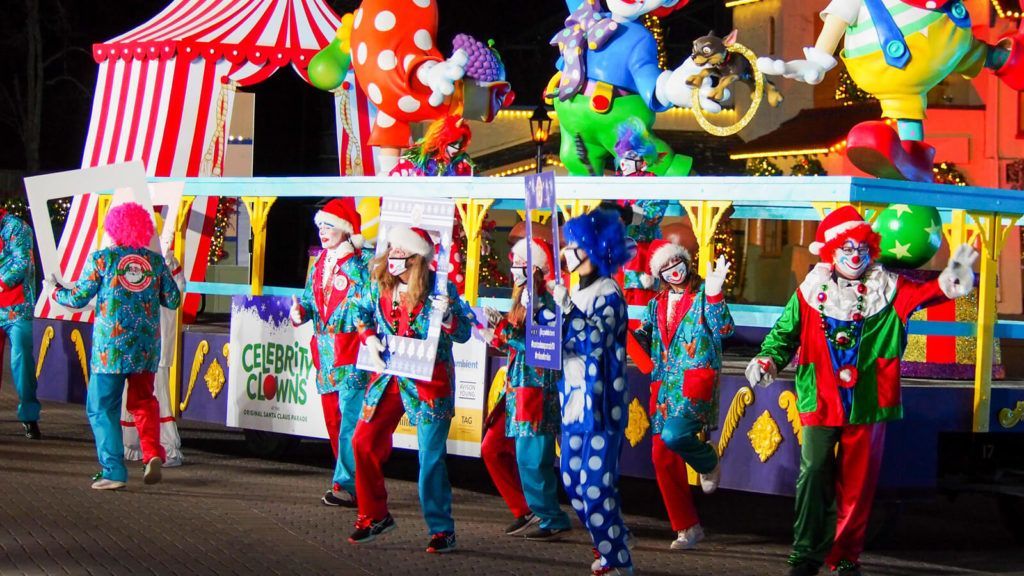
2005
100 Years of Smiles
Today, there are more than 25 animated floats with themes ranging from Harry Potter to Hockey Night in Canada. More than 200 Celebrity Clowns lead the Parade and raise about $200,000 annually, while around 2,000 costumed participants march happily through Toronto’s streets. Toronto police asked Parade organizers to extend the route by one mile in order to spread out the crowds of spectators. Toronto’s Santa Claus Parade is the longest running children’s Parade in the world, broadcast across North America, as far away as New Zealand, Norway and Ireland.
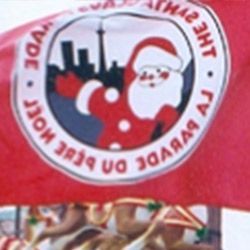
1989
The Russian Connection
Between 1989 and 1991, the Santa Claus Parade formed an alliance with Russia (the Soviet Union) just as the Soviet era was coming to a close. In 1989, two Soviet broadcasters, Herman Solomatin and Tetyana Vedenyeva provided on-the-spot coverage of the Parade, which was broadcast to 250 million viewers in the Soviet Union via the Gosteleradio Network. Based on this interest, Russia was invited to participate in the Parade in 1991.
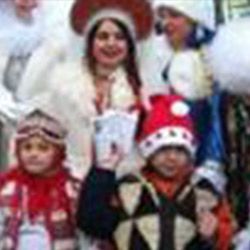
1985
Turning The Lights On
The lights around Queen’s Park Circle were lit early for the Parade for the first time in 1985. Now there is an annual tree lighting ceremony in downtown Toronto during the days leading up to the Santa Claus Parade.
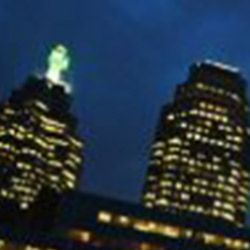
1982
Barbaro and Cohon save the Parade
Eaton’s announced it was withdrawing from sponsorship of the Parade after 77 years. Within three days, Ron Barbaro and George Cohon formed a not-for-profit Organization and became Co-Chairmen and Founders. Together, they signed 20 Companies to sponsor floats in the first year. The tradition of the Celebrity Clowns began in 1983, when more than 60 Executives paid $ 1,000 each to hand out balloons, march and entertain kids along the Parade route.
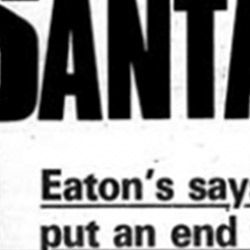
1980
The Parade Goes Global
1980 marked the 75th anniversary of the Parade and 1,700 volunteers participated in the ‘Parade Salute’, a special theme to mark the year. The Parade featured floats for Canada’s major regions, including the Prairies, the Yukon, the West and East coasts. Punkinhead lead a float carrying children from 24 countries to honour the International Year of the Child.
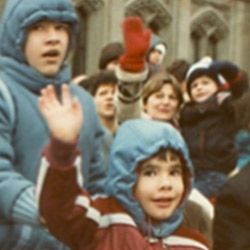
1976
Popularity Demands Longer Route
More than 30 million people across North America watched the Eaton’s Santa Claus Parade on television. In 1976, there were 33 small and large floats in the Parade, with room for more than 200 children on the floats and 500 marchers. The route was lengthened to 7.5 miles to allow for larger crowds.
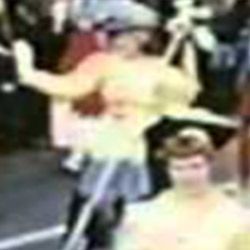
1957
The Parade Grows
There were 13 large floats in the 1957 Parade and nearly 20 smaller floats with two horse-drawn carriages. Two thousand people marched in the Parade that year, with the majority from Metropolitan Toronto Secondary Schools led by 30 teacher Parade marshals. The Parade was six miles long and began at 8:30AM – after two solid hours of makeup and dressing
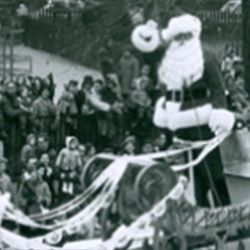
1950
Santa on the Small Screen
By 1950, the Eaton’s Santa Claus Parade was the largest in North America and was first televised on CBC in 1952. For years after that, the Parade was filmed and packaged for schools with professional narration by such well-known broadcasters as Byng Whitteker and Don Harron.
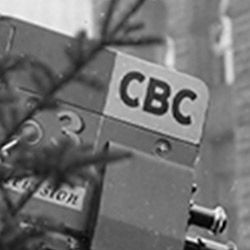
1948
'Punkinhead' is Born
In 1948 Eaton’s published a children’s book called Punkinhead, the Sad Little Bear. It was about a teddy bear who wanted to be in the Santa Claus Parade. Eaton’s published several books of Punkinhead’s adventures, as well as colouring books, records and television commercials. He was so well-known that children cheered him when he marched in the Parade.
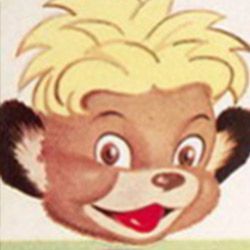
1939
World War Spirit
During World War II when materials were scarce, most of the Parade costumes were made of paper. A big draw during this period was for children to watch the Parade from office buildings along the route. All the windows facing South were crowded with children, including the Park Plaza Hotel (today’s Park Hyatt).
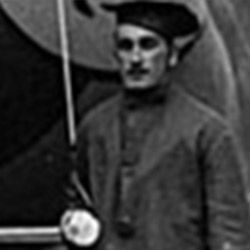
1929
Escape from Depression Doldrums
The Parade dazzled Toronto with toy-themed floats, storybook characters, and even a giant swan. Sponsored by Eaton’s, children joined the spectacle as costumed characters, while crowds gathered in the midst of the Great Depression, cementing the Parade as a cherished city tradition.
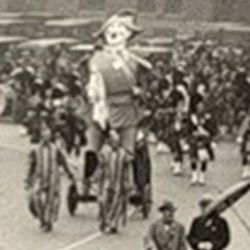
1925
A Tale of Two Cities
To escape from the realities of the Great Depression, families pressed their ears to the radio. Starting in the early 1930s, CFRB radio began broadcasting a month of dramatic programming that followed Santa’s journey from the North Pole to Toronto. By the time the Parade took place, children and adults alike were beyond excitement. Santa brought with him a magic and mystery that gave everyone hope.
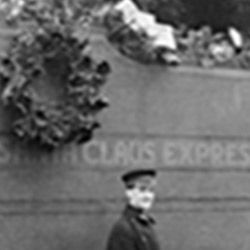
1919
Air Santa
This was the year Santa arrived by air. He touched down on the Aerodrome on Eglinton Avenue, seven years before Lindbergh arrived in Paris. He was to be pulled by horses with outriders dressed as lions. However, the horses balked at the costumes worn by the outriders and were subsequently banned from the Parade.
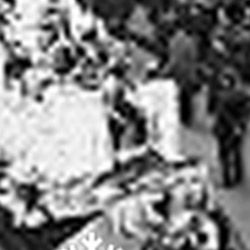
1917
Birds of a Feather
By this time, the Parade had seven floats starring nursery rhyme characters. The biggest float that year was a giant swan carrying a band of musicians and clowns, with Santa in the centre of it all. Mother Goose also became a Parade tradition, taking newer more elaborate forms each year.
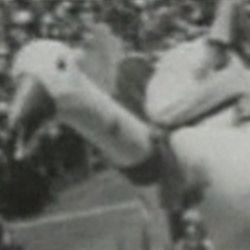
1913
Historic Hooves
Eaton’s arranged for Santa to be pulled by live reindeer, which had been imported from Labrador specifically for the Parade. The reindeer had a dedicated veterinarian who looked after them and supplied their special diet of moss. Following the Parade, the reindeer retired to the property of an Eaton’s Executive outside Toronto. That year, children along the route started to march through the city along with Santa, stopping to dance and sing as they went. They dropped letters to Santa into baskets on poles carried by bearers. Every letter with an address received a personal response from Santa.
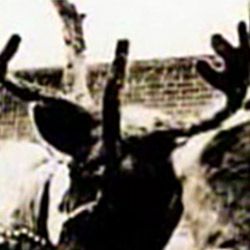
1905
The Very First Parade
The first Santa Claus Parade was held on December 2, 1905 and was sponsored by Eaton’s department store. In this premiere Parade - one float picked up Santa from Union Station and delivered him to the downtown Toronto Eaton’s store.
1905
